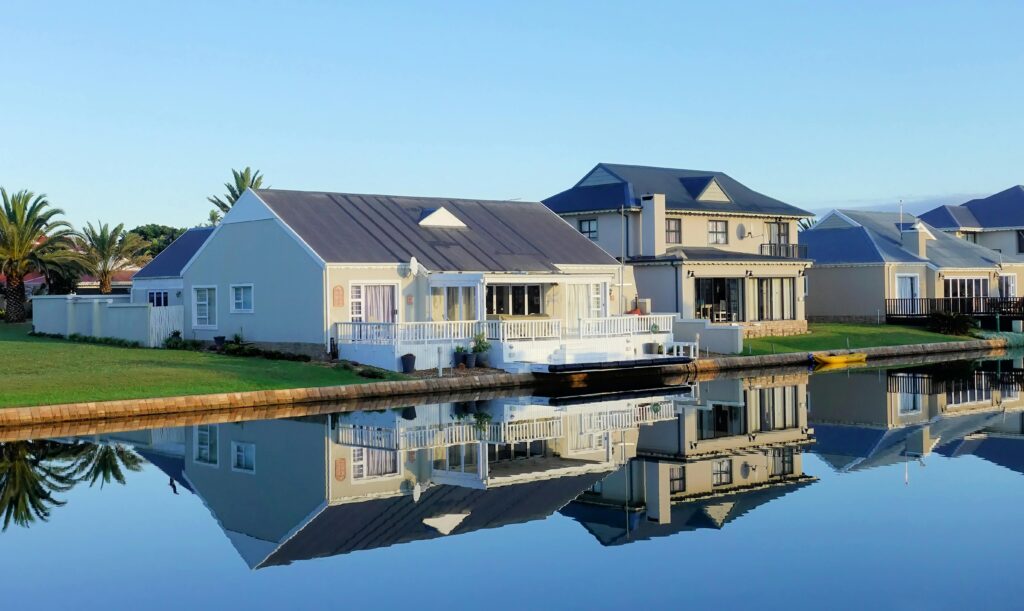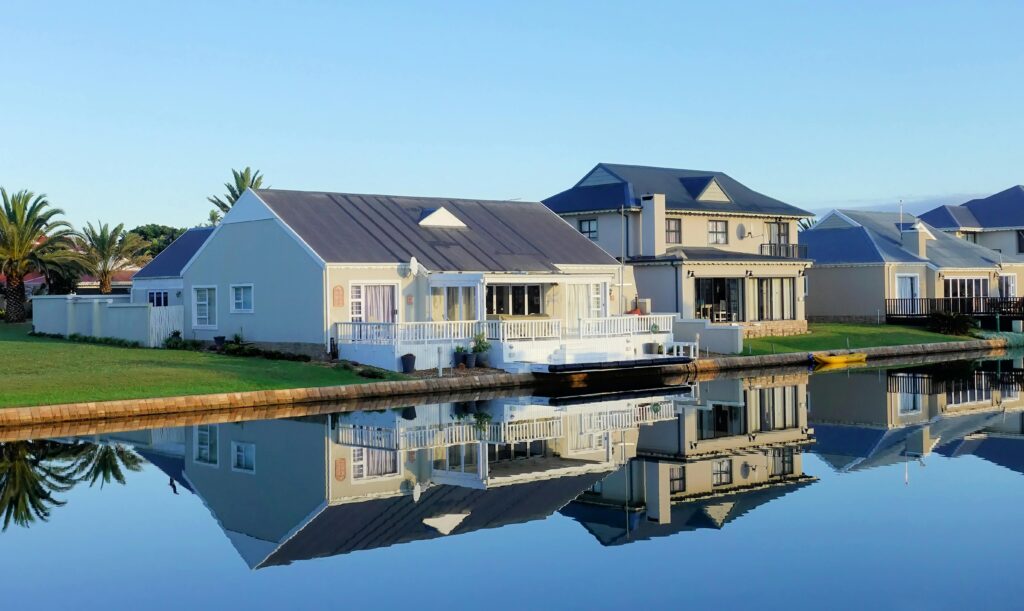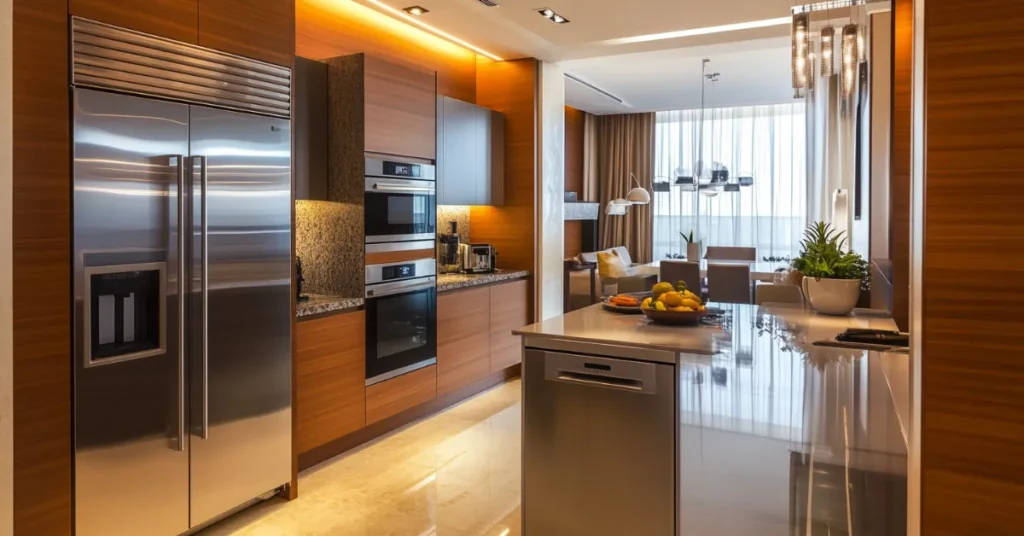<! - wp:paragraph - >
When an Airbnb host sells their house, the ripple effects touch every corner of their short-term rental empire, existing bookings, future reservations, guests, and even their coveted superhost status.
<! - /wp:paragraph - >
<! - wp:paragraph - >
For hosts, buyers, and guests, navigating this shift demands precision, strategy, and a deep understanding of Airbnb’s policies.
<! - /wp:paragraph - >
<! - wp:paragraph - >
We’re here to break down exactly what happens when an Airbnb host sells their property, how to execute a smooth transition, and why aligning with a powerhouse like 10XBNB can catapult your success in this high-stakes game.
<! - /wp:paragraph - >
<! - wp:paragraph - >
So, what happens if Airbnb host sells house and what to do if that’s you. This is one of the most popular Airbnb Business pages as it’s a hot topic for hosts!
<! - /wp:paragraph - >
<! - wp:html - >
<! - /wp:html - >
<! - wp:heading - >
The Reality of Property Sales in Short-Term Rentals
<! - /wp:heading - >
<! - wp:image {"id":3396,"sizeSlug":"large","linkDestination":"none"} - >

<! - /wp:image - >
<! - wp:paragraph - >
Selling an Airbnb property isn’t just a real estate transaction; it’s a pivot that impacts an entire ecosystem of bookings, guests, and revenue streams.
<! - /wp:paragraph - >
<! - wp:paragraph - >
When a host sells, the current owner must address existing reservations, communicate with upcoming guests, and ensure the property’s value shines for potential buyers.
<! - /wp:paragraph - >
<! - wp:paragraph - >
Unlike traditional home sales, an Airbnb property carries the weight of an active business, with confirmed bookings and a reputation built on guest reviews.
<! - /wp:paragraph - >
<! - wp:paragraph - >
Mishandle this, and you risk cancellations, penalties, and a tarnished legacy. But with the right moves, you can turn this transition into a win for everyone involved.
<! - /wp:paragraph - >
<! - wp:heading - >
Airbnb’s Policies: No Listing Transfers, New Owner, New Rules
<! - /wp:heading - >
<! - wp:paragraph - >
Airbnb’s policies are crystal clear: listings and accounts are non-transferable. When an Airbnb host sells their house, the new owner can’t inherit the existing Airbnb account, listing, or reviews. The new host must create a new account and build a new listing from scratch.
<! - /wp:paragraph - >
<! - wp:paragraph - >
This means the listing description, photos, and booking history stay with the original host, and the new owner starts fresh. For hosts, this underscores the need to document every detail, guest communication templates, cleaning schedules, and vendor contacts, to pass on to the buyer for a seamless handoff.
<! - /wp:paragraph - >
<! - wp:image {"id":3970,"sizeSlug":"full","linkDestination":"none"} - >

<! - /wp:image - >
<! - wp:heading - >
Impact on Existing Bookings and Future Reservations
<! - /wp:heading - >
<! - wp:paragraph - >
When a host sells, existing bookings face disruption. Airbnb doesn’t allow reservations to transfer to the new owner’s account, so the current owner must either honor confirmed bookings before the sale closes or cancel them.
<! - /wp:paragraph - >
<! - wp:paragraph - >
Canceling reservations triggers Airbnb’s cancellation fees, $50 if canceled more than seven days before check-in, or $100 if closer to the date. Worse, multiple cancellations can lead to losing superhost status, a badge that signals reliability to future guests. To avoid this, savvy hosts coordinate with the buyer to honor existing reservations or help guests rebook with alternative accommodations.
<! - /wp:paragraph - >
<! - wp:heading {"level":3} - >
Pro Tip: Plan Early to Protect Your Reputation
<! - /wp:heading - >
<! - wp:paragraph - >
Start planning the sale months in advance. Block off the listing’s calendar for dates after the expected closing to prevent new bookings.
<! - /wp:paragraph - >
<! - wp:paragraph - >
This clean break minimizes cancellations and preserves your superhost status. For expert strategies on scaling your Airbnb business while avoiding pitfalls and maintaining high cleanliness standards, check out the Airbnb Cleaning Checklist for professional cleaning services and How to Start an Airbnb Business from 10XBNB.
<! - /wp:paragraph - >
<! - wp:heading - >
Guest Experience: Communication Is King
<! - /wp:heading - >
<! - wp:paragraph - >
Guests are the lifeblood of any Airbnb property, and when a host sells, clear communication is non-negotiable.
<! - /wp:paragraph - >
<! - wp:paragraph - >
Notify upcoming guests immediately about the sale, explaining how their booking will be handled, whether it’s honored by the current owner, transferred to the new host, or canceled with assistance to find alternative accommodations.
<! - /wp:paragraph - >
<! - wp:paragraph - >
Transparency builds trust and prevents negative reviews that could haunt the host’s reputation. For example, offering to help guests rebook at a comparable property can turn a potential disaster into a five-star experience.
<! - /wp:paragraph - >
<! - wp:heading {"level":3} - >
Pro Tip: Craft a Guest Communication Template
<! - /wp:heading - >
<! - wp:paragraph - >
Create a professional message template to inform guests of the sale. Include the new owner’s contact details (if applicable) and offer support for rebooking. This proactive approach minimizes disruptions and showcases your commitment to hospitality. For more on optimizing your Airbnb operations, see Questions to Ask an Airbnb Property Manager from 10XBNB.
<! - /wp:paragraph - >
<! - wp:heading - >
The New Owner’s Role: Starting Fresh with a New Listing
<! - /wp:heading - >
<! - wp:paragraph - >
When an Airbnb host sells their house, the new owner faces a blank slate. They must create a new Airbnb account and build a new listing, replicating the listing description, photos, and amenities to maintain consistency. However, they can’t inherit the original host’s reviews or superhost status. This is where strategic planning shines, new owners should request all documentation from the seller, including financial records, guest feedback, and operational systems, to hit the ground running.
<! - /wp:paragraph - >
<! - wp:heading {"level":3} - >
Why 10XBNB Is Your Secret Weapon
<! - /wp:heading - >
<! - wp:paragraph - >
Scaling an Airbnb property from scratch is no small feat, but 10XBNB’s proven strategies can transform a new listing into a cash-flowing machine. From SEO-optimized listing descriptions to dynamic pricing, their program equips new owners to dominate the short-term rental market. Curious about turning a property into a powerhouse? Explore How to Start an Airbnb Business to reach your goals.
<! - /wp:paragraph - >
<! - wp:heading - >
<! - /wp:heading - >
<! - wp:paragraph - >
If the host cancels reservations due to a sale, Airbnb imposes cancellation fees, $50 for cancellations more than seven days before check-in, or $100 if closer. Multiple cancellations within a year can deactivate the listing and lead to losing superhost status, which requires a 1% cancellation rate, a 4.8 overall rating, and consistent hosting. To avoid penalties, hosts can contact Airbnb Support with proof of the sale (e.g., closing documents), allowing Airbnb to cancel bookings without fees or status impact.
<! - /wp:paragraph - >
<! - wp:heading {"level":3} - >
How to Cancel Without Penalty
<! - /wp:heading - >
<! - wp:paragraph - >
To cancel without penalty, the seller must notify Airbnb Support before listing the property for sale and provide documentation post-sale. Airbnb will review the case and, if approved, cancel future bookings penalty-free. This process protects the host’s reputation and frees the new owner to create their own listing.
<! - /wp:paragraph - >
<! - wp:heading - >
The 90-Day Rule and 25 Rule: Airbnb’s Hosting Limits
<! - /wp:heading - >
<! - wp:paragraph - >
The 90-day rule applies in certain regions, like London, where hosts can only rent their primary residence for up to 90 days per year without a short-term rental permit. If an Airbnb host sells their house, the new owner must comply with this rule or secure a permit to continue hosting. The 25 rule is a misnomer, there’s no official Airbnb policy by this name, but some hosts refer to a 25% occupancy target to cover costs. New owners should analyze local regulations and occupancy goals to ensure profitability.
<! - /wp:paragraph - >
<! - wp:heading - >
Legal Considerations in Property Sales
<! - /wp:heading - >
<! - wp:image {"id":3400,"sizeSlug":"large","linkDestination":"none"} - >

<! - /wp:image - >
<! - wp:paragraph - >
Selling an Airbnb property involves legal considerations beyond a standard real estate transaction. Hosts must review existing contracts with cleaners, maintenance providers, or property managers, as these don’t automatically transfer to the new owner. Additionally, local short-term rental laws may restrict the new owner’s ability to host, especially if permits are non-transferable. Consulting a real estate attorney and tax advisor is critical to navigate liabilities, capital gains, and compliance.
<! - /wp:paragraph - >
<! - wp:heading {"level":3} - >
Pro Tip: Highlight the Airbnb Business in the Sale
<! - /wp:heading - >
<! - wp:paragraph - >
To maximize the selling price, showcase the property’s Airbnb performance, consistent bookings, positive reviews, and revenue history. A real estate agent specializing in short-term rentals can position the property as a turnkey investment. For insights on valuing your Airbnb business, check out Airbnb Business for Sale from 10XBNB.
<! - /wp:paragraph - >
<! - wp:heading - >
The Buyer’s Perspective: Opportunity or Obstacle?
<! - /wp:heading - >
<! - wp:paragraph - >
For potential buyers, purchasing an Airbnb property is a chance to enter the lucrative world of short-term rentals. However, they must understand that existing bookings may not transfer, and they’ll need to create a new listing. Smart buyers request detailed financials, guest feedback, and operational systems from the seller to replicate the property’s success. They should also verify local regulations to ensure hosting is viable post-sale.
<! - /wp:paragraph - >
<! - wp:heading - >
Coordinating a Smooth Transition
<! - /wp:heading - >
<! - wp:paragraph - >
A smooth transition requires collaboration between the host, buyer, and guests. The current owner should provide the new owner with all listing details, photos, descriptions, and pricing strategies, to maintain continuity. If the new owner plans to host, they can work with the seller to honor future bookings by having guests rebook under the new account, ideally at the same rate. This approach minimizes disruptions and preserves guest satisfaction.
<! - /wp:paragraph - >
<! - wp:heading {"level":3} - >
Case Study: A 10XBNB Success Story
<! - /wp:heading - >
<! - wp:paragraph - >
One 10XBNB member purchased an Airbnb property and, using the program’s strategies, rebooked 90% of existing reservations under a new listing within two weeks. By using 10XBNB’s dynamic pricing and guest communication templates, they achieved 85% occupancy in their first month, outpacing competitors. This is the power of a system designed to win.
<! - /wp:paragraph - >
<! - wp:heading - >
Financial Implications: Money on the Table
<! - /wp:heading - >
<! - wp:paragraph - >
Selling an Airbnb property can command a premium due to its revenue potential, but hosts must account for cancellation fees, taxes, and lost future bookings. Buyers, meanwhile, face startup costs to furnish and list the property. Both parties should consult financial experts to optimize the deal. For hosts, documenting the property’s income stream can justify a higher selling price, while buyers can use this data to project returns.
<! - /wp:paragraph - >
<! - wp:heading {"level":3} - >
Furnishing the Property for Success
<! - /wp:heading - >
<! - wp:paragraph - >
New owners often need to furnish the property to Airbnb standards, which can be a significant expense. A well-furnished property attracts higher-paying guests, boosting revenue. For a complete guide, see Furnishing Airbnb Checklist from 10XBNB.
<! - /wp:paragraph - >
<! - wp:heading - >
Guest Protections: Airbnb’s Role
<! - /wp:heading - >
<! - wp:paragraph - >
When Airbnb cancels bookings due to a sale, guests receive full refunds and support to find alternative accommodations. Airbnb’s policies prioritize guest experience. Hosts should assist guests in rebooking to maintain goodwill, especially if the new owner isn’t continuing the Airbnb business.
<! - /wp:paragraph - >
<! - wp:heading - >
Reddit Insights: Real-World Experiences
<! - /wp:heading - >
<! - wp:paragraph - >
On Reddit, guests and hosts share raw experiences about property sales. One guest reported a host selling their property mid-stay, leaving them scrambling for alternative accommodations. Another host described losing superhost status after canceling future reservations but regained it by using 10XBNB’s strategies to rebuild their profile. These stories highlight the importance of proactive planning and communication.
<! - /wp:paragraph - >
<! - wp:heading - >
The Transition Period: Timing Is Everything
<! - /wp:heading - >
<! - wp:paragraph - >
The transition period, between listing the property for sale and closing, demands precision. Hosts should block new bookings to avoid conflicts and work with the buyer to align on closing dates. A buffer period post-sale allows the new owner to set up utilities, furnishings, and their Airbnb account.
<! - /wp:paragraph - >
<! - wp:heading {"level":3} - >
Pro Tip: Sync Calendars for Continuity
<! - /wp:heading - >
<! - wp:paragraph - >
If the new owner plans to host, sync the listing’s calendar with VRBO or other platforms to prevent double bookings. This ensures future guests experience no hiccups, preserving the property’s reputation.
<! - /wp:paragraph - >
<! - wp:heading - >
Why Property Sales Are a Growth Opportunity
<! - /wp:heading - >
<! - wp:image {"id":3399,"sizeSlug":"large","linkDestination":"none"} - >

<! - /wp:image - >
<! - wp:paragraph - >
For ambitious hosts, selling an Airbnb property isn’t an end, it’s a launchpad to scale. Use the proceeds to invest in a larger property or multiple listings, amplifying your revenue. 10XBNB’s program teaches hosts to turn transitions into triumphs, with strategies to maximize returns and dominate new markets.
<! - /wp:paragraph - >
<! - wp:heading - >
Common Pitfalls and How to Avoid Them
<! - /wp:heading - >
<! - wp:list - >
- <! - wp:list-item - >
- Pitfall: Canceling bookings without notifying Airbnb Support.
Solution: Submit proof of sale to avoid fees and protect superhost status. - Pitfall: Failing to disclose local regulations to the buyer.
Solution: Provide a compliance report to ensure the new owner can host legally. - Pitfall: Poor guest communication during the sale.
Solution: Use templated messages to keep guests informed and satisfied.
<! - /wp:list-item - >
<! - wp:list-item - >
<! - /wp:list-item - >
<! - wp:list-item - >
<! - /wp:list-item - >
<! - /wp:list - >
<! - wp:heading - >
The 10XBNB Advantage: Scale Like a Titan
<! - /wp:heading - >
<! - wp:paragraph - >
Whether you’re a host selling your property or a buyer stepping into short-term rentals, 10XBNB is your unfair advantage. Their program delivers battle-tested strategies, listing optimization, guest communication, and revenue management, to ensure you crush it. Why settle for average when you can 10X your results? Join 10XBNB and build an empire that prints money while you sleep.
<! - /wp:paragraph - >
<! - wp:heading - >
FAQs
<! - /wp:heading - >
<! - wp:paragraph - >
What is the 90-day rule on Airbnb?
In regions like London, hosts can rent their primary residence for up to 90 days per year without a permit. New owners must comply or secure a permit.
<! - /wp:paragraph - >
<! - wp:paragraph - >
What happens if an Airbnb host sells a house on Reddit?
Reddit users report cancellations, guest disruptions, and hosts losing superhost status. Proactive communication and 10XBNB strategies can mitigate these issues.
<! - /wp:paragraph - >
<! - wp:paragraph - >
What is the 25 rule on Airbnb?
There’s no official 25 rule, but some hosts aim for 25% occupancy to cover costs. New owners should set realistic occupancy goals based on market data.
<! - /wp:paragraph - >
<! - wp:paragraph - >
How to cancel Airbnb as a host without penalty?
Contact Airbnb Support with proof of the sale to cancel bookings penalty-free, preserving your account and status.
<! - /wp:paragraph - >













